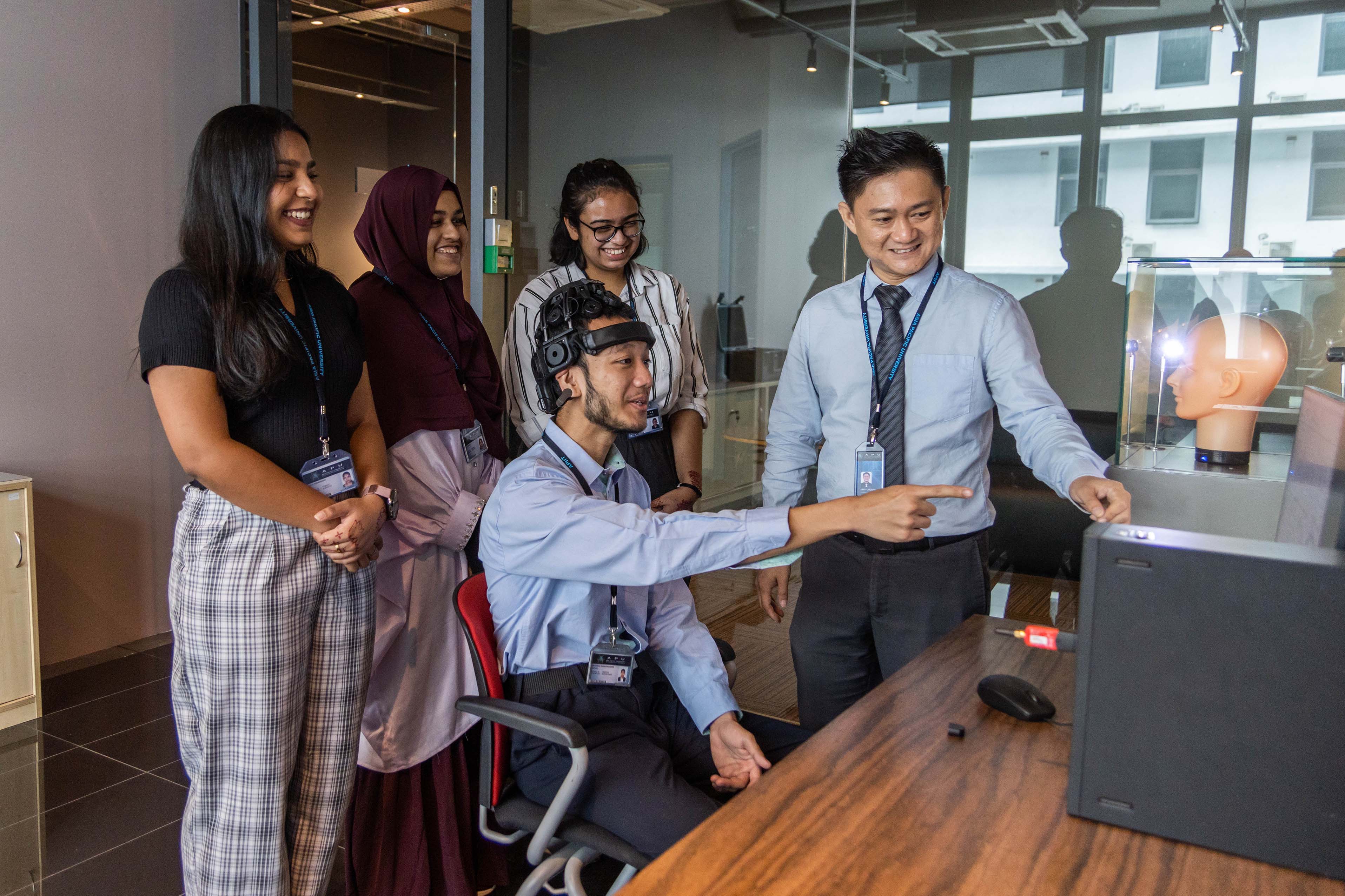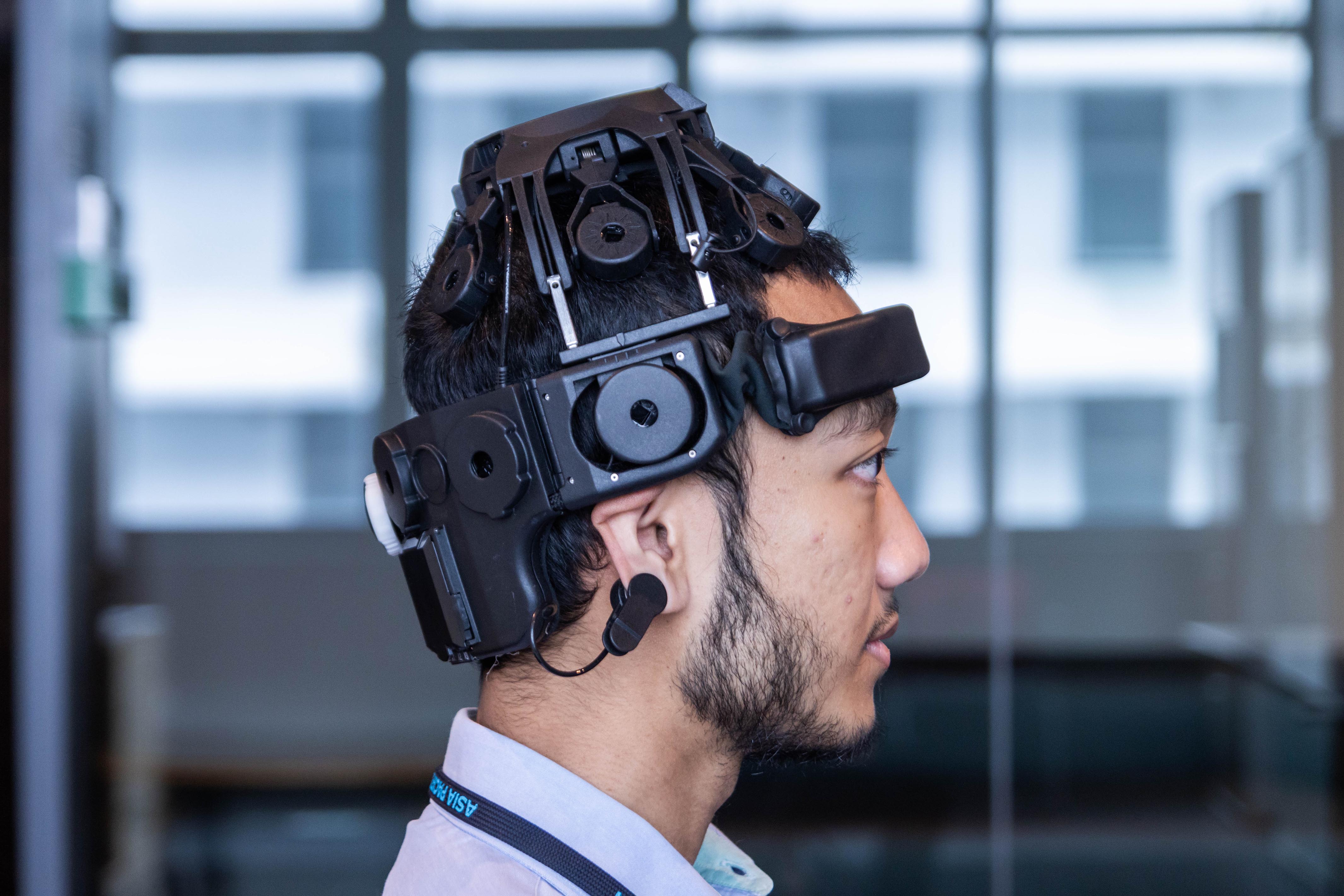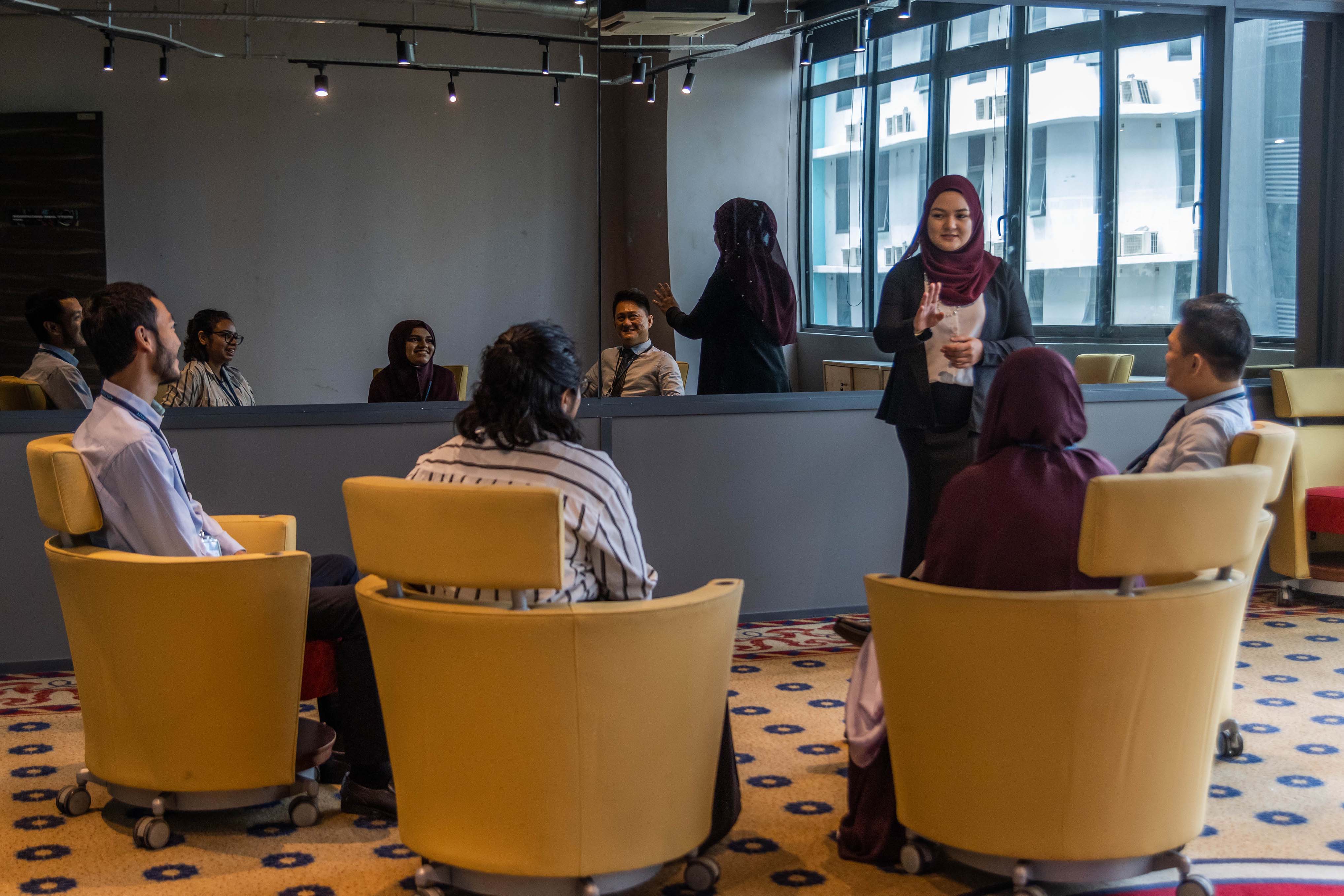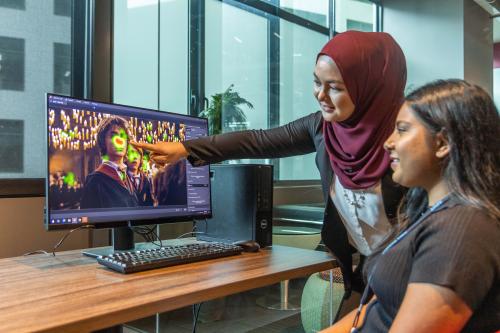APU psychology students analyse human behaviours with high-tech equipment
A ground-breaking Bachelor of Science (Honours) in Psychology at the Asia Pacific University of Technology & Innovation (APU) incorporates technology modules with psychology.
When the cyber world gets more intertwined with psychology, apart from getting conventional psychology training to understand the human mind, behaviour, and different types of personalities, cyberpsychology comes into the picture.
“Cyberpsychology is the study of human behaviour and mental processes in the context of human-technology interaction, the focus of this module is on the psychology of online behaviour, to uncover how the internet and digital technologies affect attitudes, emotions, and the societal impacts of living in a digital age, such as the exploration of the motives and psychological makeup that contribute to Cybercrime,” elucidated Ms Wan Noraina Wan Abdullah, the Programme Leader.
Even though psychology professionals work in human domains, students in this field need to have a strong grasp of technological aspects, especially when the line between cyberspace and the real world is becoming increasingly blurred.
Globally, the adoption rate of emerging technologies – including cloud computing, connected devices, mobile, robotics and blockchain, have grown at an exponential rate over the past 10 years¹. As of April 2022, there were five billion internet users worldwide, which is 63% of the global population. Of this total, 4.65 billion were social media users².
What's more, the arrival of the Metaverse will even reinforce the blurring of the lines between the physical world and the virtual one, our physical world will eventually merge with the digital – in fully immersive virtual reality.
Since technology is reshaping the way we live, think and behave, the transformation of psychology studies has introduced new ways to provide treatment or therapy. This has affected the dissemination of knowledge and how research is conducted.
“In our modules, students will also be exposed to Psychotechnology, to understand user experience (UX), cognitive workload and use these results to the solution of practical problems, especially for the industry,” stated Wan Noraina.
With such modules designed to get with the times, students will have vital skills and knowledge, enabling them to work in various sectors, such as e-sport, advertising, and many more that need a deep understanding of its psychological impacts.
To create a conducive learning and studying environment mirroring the professional setting that supports both counselling and clinical psychology needs, APU has invested significantly to set up the Centre for Psychology and Well-Being at its campus.


Assoc. Prof. Dr. Devinder Kaur, Head of the School who oversees the setting up of the Centre, explained, “As a tech-centric and industry-driven university, APU has blended technology elements into conventional psychology teaching and learning.”
“APU’s Centre for Psychology and Well-Being is an innovative facility that houses advanced equipment embedded with state-of-the-art technology that supports psychology learning and research – which itself has set us apart from our competitors,” Dr. Devinder pointed out.
“The main concept behind the design of the Centre is to create a professional-like high-tech centre which attracts students towards experiential learning coupled with a comfortable learning environment,” she continued.
According to Wan Noraina, by placing psychological tools infused with modern technology to better predict and understand human behaviour such as Electroencephalogram (EEG), Eye Tracker, and Computerised Psychological Assessments, students can learn to make data-driven decisions.
Together with Eye-Tracking Laboratory, the design of the Centre includes Psychobiological Laboratory; Psychoanalysis Therapy Suites for both individual and group therapy; Psychological Testing and Measurement Room; Psychology Group Observation Suite that is complimented with a one-way mirror and AV capture equipment; Activity and Discussion Rooms; and teaching classrooms that are tied to instructional learning and research activities.

Some highlights of the training using the advanced setting and facilities mentioned above are:
The DSI-24 Electroencephalogram (EEG), a wireless dry electrode EEG headset in the Psychobiological Lab provides students with the opportunity to learn about cognitive processes such as attention and memory by placing conductive electrodes on the scalp which measure the small electrical potentials that arise outside of the head due to neuronal action within the brain.
In the Psychological Testing and Measurement Room, the latest state-of-the-art Tobii Pro Fusion Eye Tracker which focuses on information processing such as scene perception, and visual searching, provides students with a hands-on experience in using the equipment.
Psychoanalysis Therapy Suite with the centrepiece of Sigmund Freud’s famous psychoanalytic couch. This setting helps students learn role-play skills or conduct any activity relating to counselling or psychotherapy.
Psychology Group Observation Suite is installed with a one-way mirror (semi-transparent mirror) and is brightly lit from one side to allow students to inconspicuously observe people's behaviour on the other side while maintaining privacy.
Individual (and Group) Therapy Rooms are designed to provide a quiet, comfortable, energizing, and soothing space ideal for conducting individual or group counselling. The rooms will be utilized by registered counsellors and educators to provide their respective services like consultation, teaching and intern-related training.
With proficiency in using advanced technology, especially digital assessments, APU’s psychology graduates become tech-savvy and well equipped for the competitive world of the psychology industry.
“Based on market demands, the combination of fundamental knowledge of psychology and digital skills will provide our graduates with unique skills to compete in the job market. Therefore, we are preparing our students to be in line with IR 4.0 and beyond,” concluded Wan Noraina.
Her statement is underpinned by the latest Annual Graduate Tracer Study by the Higher Education Ministry, as it shows that 100% of APU graduates were employed upon graduation.
At APU, students will also have the option to opt-in for the APU-DMU dual degree scheme, where they will receive two sets of degree certificates and transcripts upon graduation: one from APU (Malaysia), and another from De Montfort University (United Kingdom). DMU is a university with over 150 years of experience in providing higher education to students from around the globe.
¹ https://mediapeanut.com/how-fast-is-technology-growing-statistics-facts/
² https://www.statista.com/statistics/617136/digital-population-worldwide/
RM12.50 / month
- Unlimited access to award-winning journalism
- Comment and share your opinions on all our articles
- Gift interesting stories to your friends
- Tax deductable
